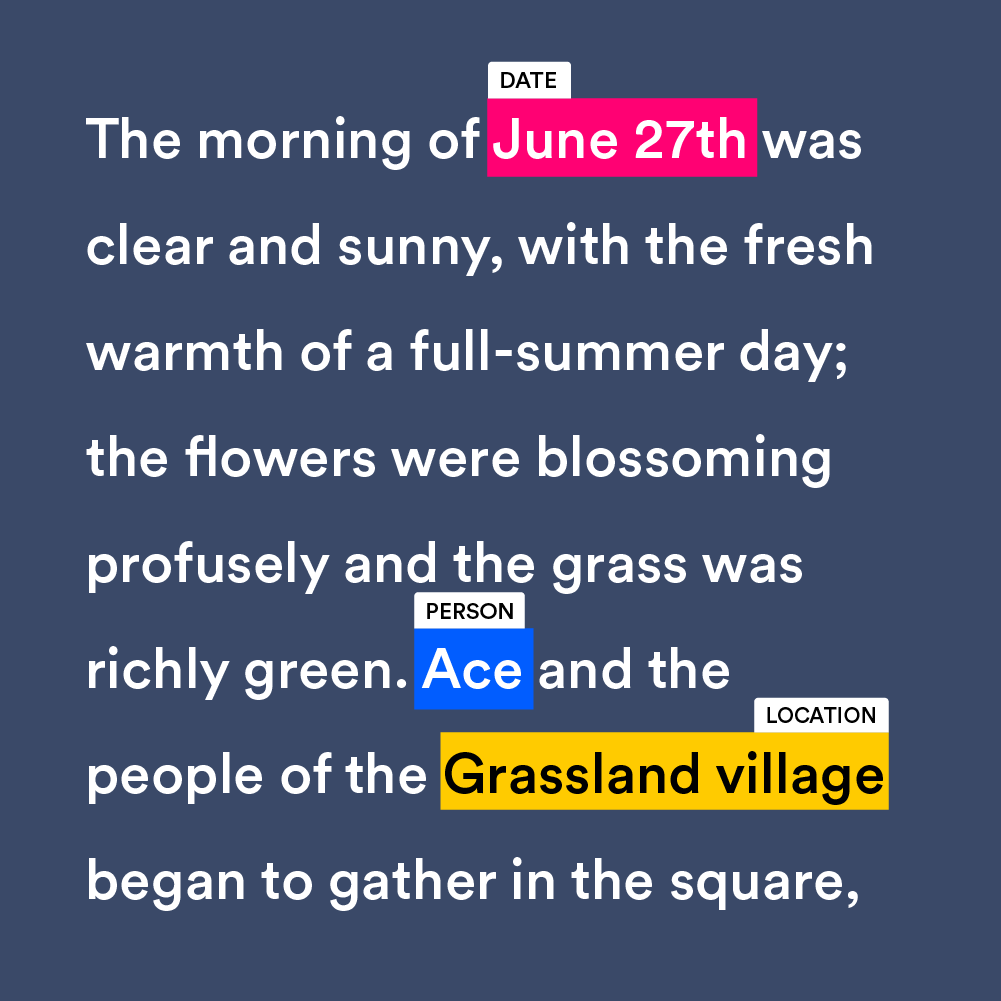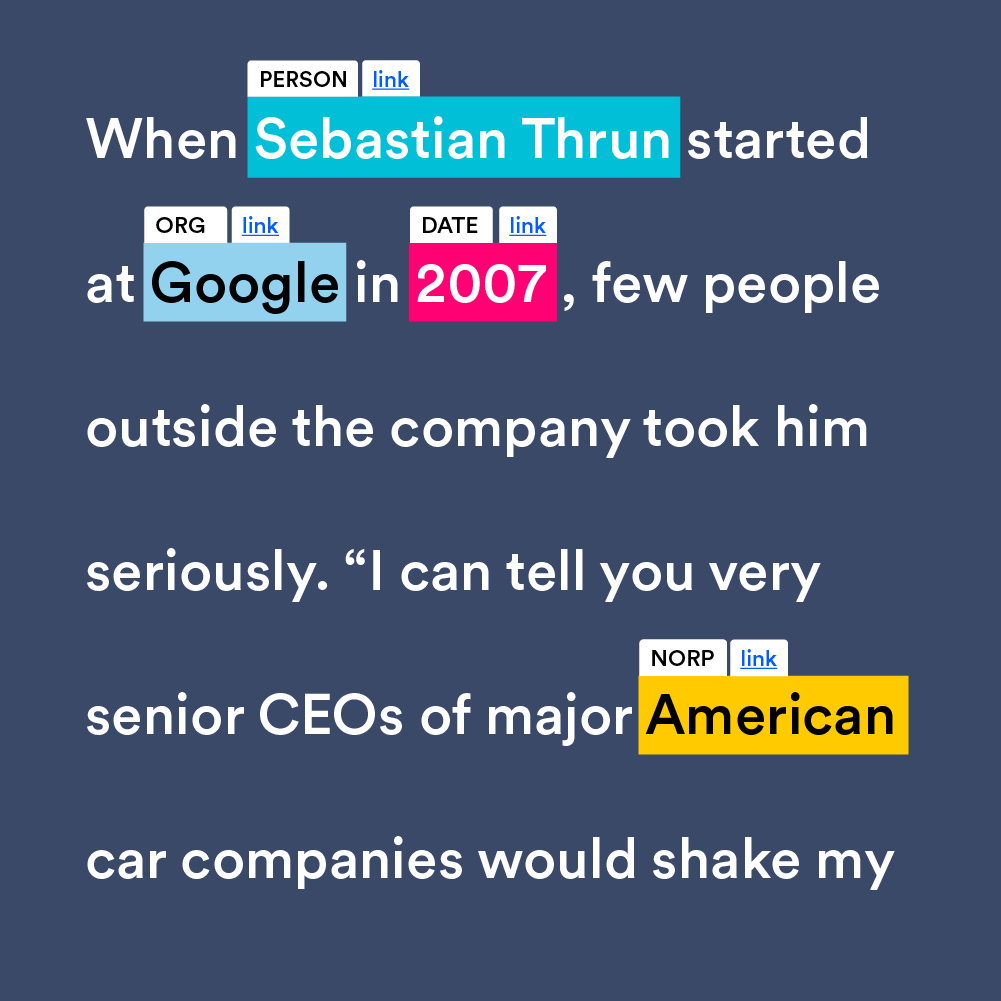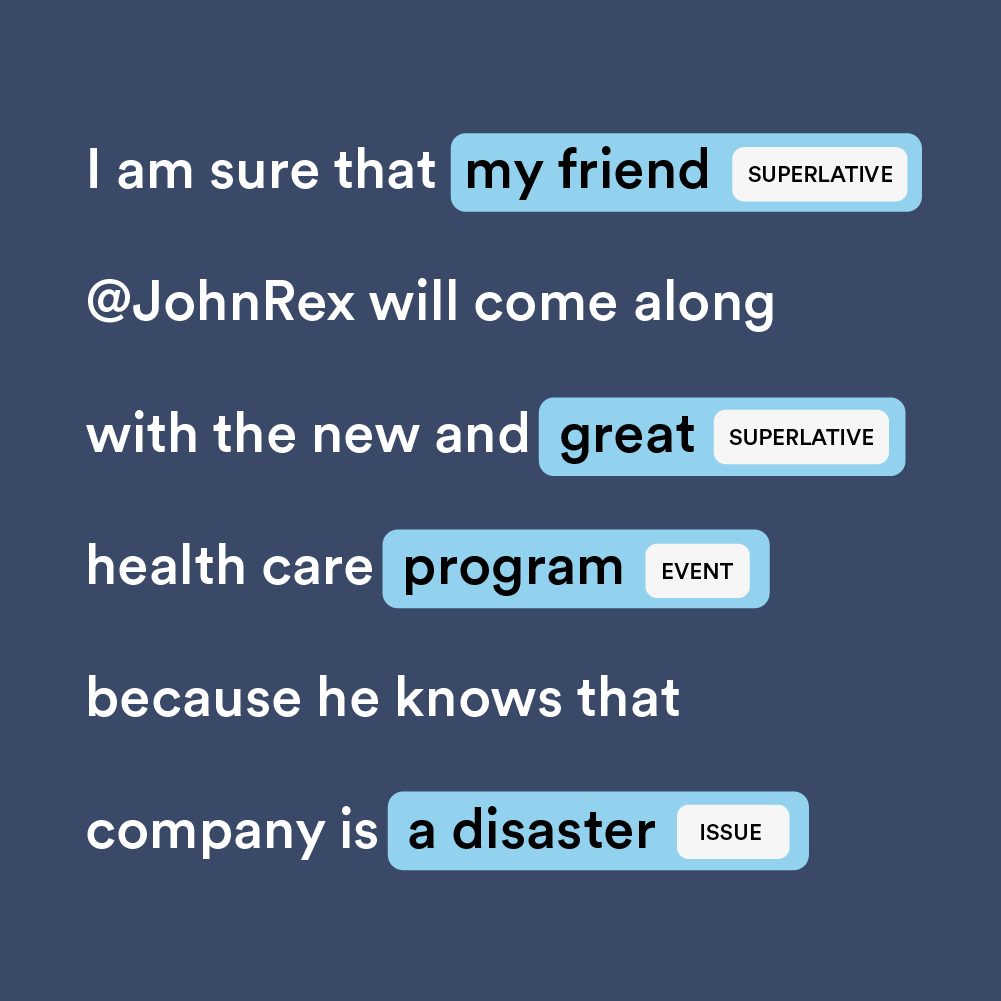Industry Knowledge
A Handy Guide to Text Annotation Services for Machine Learning
While it’s easier for humans to understand the meaning or context behind internet slang like “IMHO” or “I can’t even,” machine learning models need human intervention and training to properly interpret them.
That’s where text annotation, a type of data annotation, comes into the picture. The quality of text annotation helps a machine learning model accurately understand the intent and meaning behind human interactions.
What are Text Annotation Services?
Text annotation services are a subset of data labeling services that involve adding metadata tags to training datasets to help build highly efficient natural language processing models. To simplify, text annotation helps a machine learning model recognize key phrases or expressions and accurately interpret their context and meaning.
Text annotation services are most commonly used to create high-quality training data for natural language processing (NLP) applications, such as chatbots, automatic search recognition models, natural language query processing, multilingual translations, document processing, and much more.
Major industries like banking, eCommerce, and healthcare frequently use text annotation services to train their machine learning models more accurately to automate processes, streamline operations, and provide a better customer experience.
5 Types of Text Annotation Services
There are different types of text annotation services for machine learning models depending on the client’s needs:
Text Classification
For this type of annotation, data labelers analyze various text documents or groups of sentences and segregate them into various labels based on context, such as content types, intent, sentiment, and more.
Text classification can be further categorized into annotation types such as document classification, sentiment annotation, and product categorization. A common use case for text classification is product categorization in eCommerce, where a set of products are labeled under a particular category based on product features.

Semantic Annotation
Commonly used in training chatbots and virtual assistants, semantic annotation is a text annotation process in which labelers attach relevant metadata to text documents or unstructured content. Relevant metadata includes people, places, and topics. These are added to a set of words or phrases to enable the machine learning model to correctly interpret the data from users, commonly in the form of chat messages.

Entity Annotation
This type of text annotation helps the machine learning model recognize, extract, and tag key phrases or parts of a long text. Moreso, entity annotation can be categorized into Named Entity Recognition (NER), key phrase tagging, and point-of-speech (POS) tagging. We often generate chatbot training datasets through entity annotation to efficiently extract key information from the text data before feeding it to the machine learning model.

Entity Linking
Entity linking is the process of binding labeled entities such as well-known places and names to larger data sets in the case of Wikipedia links or Wikidata. This process can be further classified into two basic approaches: end-to-end linking and entity disambiguation.
The most common example of entity linking is linking a keyword in a web article to a Wikipedia source where readers can find more information about the keyword.

Linguistic Annotation
Another common type of text annotation is linguistic annotation in which labelers tag language data in text or audio recordings to train various natural language processing models, such as chatbots, virtual assistants, machine translation, and more. A prime example is annotating language data to develop a machine learning system like Google Translate.

Outsource Text Annotation Services with Us
Text annotation can be a time-consuming and challenging task for any organization. The process needs the help of human annotators to ensure an accurate interpretation of training datasets. Outsourcing your project to a third-party vendor that specializes in providing text annotation services can help reduce the burden on your staff while also ensuring high-quality, large-scale annotation.
At TaskUs, we have a highly qualified and well-trained team of experts that specializes in collecting, annotating, and validating text data to enhance various natural language processing models. With over 30 language capabilities, we can take care of all your text data annotation needs to help scale your business.
Check out how we helped a leading social media company give their users the best experience by training their existing machine learning model on the various contextual nuances necessary for both an expressive and safe user experience.
Interested in text annotation services?
References

We exist to empower people to deliver Ridiculously Good innovation to the world’s best companies.
Useful Links







